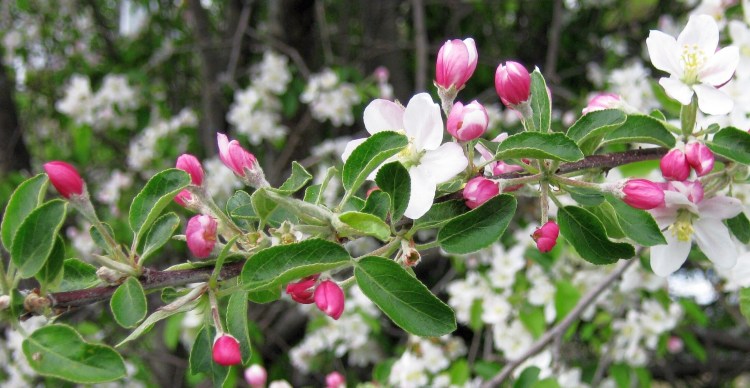When winter walked on straight through April and withered May in wind and rain and chill that lingered even through an afternoon or two of sun, it felt like summer might have been cosmically canceled.
Which, as disturbing as the drizzle, doesn’t these days seem completely out of natural range. The storms down South are intensifying and frequentifying, and so are Western wildfires, heat waves. Why should we be exempt from wayward weather?’
But as it happened, we escaped from May. Now it’s full-on, deep-blue summer June. Free at last. Or for the time being, anyway, as Annie Dillard observed. Suddenly, here’s the whole green thing again.
The forsythias flared up toward the end of May and burned like yellow bonfires unusually bright on people’s lawns. The lilacs late in the dooryard bloomed, but bloom they did, and are they more and bigger this year? Is my memory of past lives in June haywire, or is an unprecedented boomlet of maple saplings flooding the floor of my woods this year? There are more little 6-inch scions than I ever remember seeing under the firs and oaks and older maples. And are the apple trees along Route 9 from here to Hampden so full this year with white-pink blossoms they look like Earth-based globular clusters? Are the winedark hawthorns so engorged they look practically pregnant? And didn’t it all start with the shadbush, which were also delayed, but once they popped were everywhere?
Quince bushes, with beautiful blood-red flowers, transport me 35 years back to when I passed one every day on my walk to work down Munjoy Hill in Portland. The sharpness of its early morning Martian beauty is an almost audible click in the eternal recurrence of every summer. The supernatural fragrance of the first cut of hay is the same as last year’s, and profounder. Buttercups and bluets. The dandelions, going to seed. The stitchwort starting to line the walkway. Red osier dogwood blossoms like bundles of white lace.
This year the botanic fullness is unexpectedly matched by a plethora of bugs. We’ve had an uptick of dragonflies so far, swallowtail butterflies like little yellow kites, and the black flies were the worst in years in the way of being numerous little bastards.
The car windshield is splattered with mayflies and mosquitoes, to Bonnie’s less than charitable aggravation but to my hope and hopefully faith. My neighbor Greg showed me his loon license plate with mosquito corpses dotting the scene with a sense of authentic perspective. This splatter-dried insect mess has been basically absent for five or six summers and its return means: There are more bugs. The disappearance of insect populations is otherwise a dark ecological harbinger that we’re not escaping even here in distant Maine. Thin-legged wolf spiders, I’m happy to report, are darting among the flower-garden rocks in vigilant, bug-chasing abundance.
The flying insects are food for the phoebes, who every year provide in their turn inexplicable cheer. The song sparrows and chickadees. A flicker poking in the leaves near the back deck. As we drove along Route 220 near Carlton Bog, a bird with Escher-like angles and Picasso-like colors floated over, headed west. When we stopped to catch a glimpse, it was a young great blue heron with something hanging from its beak. The exact shape of the odd transition to summer this year.
A week or so ago in the middle of a June-lit sunny day, Bonnie heard a commotion on the back deck. Somebody was walking around, knocking down a broom, distinctly unlike a cat. She went to look through the screen on the doorway. Not 4 feet away, a gorgeous gray-coated adult raccoon turned its head and looked her right in the eye. Studied her, then sauntered back to the woods. Raccoons are one of those animals that, you can clearly see, are thinking things through, feeling curiosity, wonderment, fear or valor, and aware of it. I wonder what they think of summer.
Anyway, we made it out of the rain and chill of April-May and into June. And we still do not expect tornadoes anytime soon.
Dana Wilde lives in Troy. You can contact him at naturalist1@dwildepress.net. His recent book is “Summer to Fall: Notes and Numina from the Maine Woods” available from North Country Press. Backyard Naturalist appears the second and fourth Thursdays each month.
Send questions/comments to the editors.


